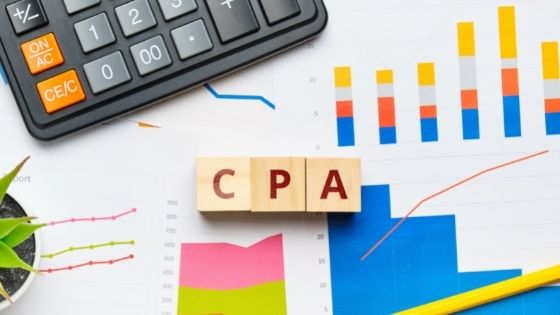In the US, there are currently 669,130 actively licensed CPAs. “CPA” stands for “Certified Public Accountant”, which is a step up from being an accountant, in terms of education, salary, etc.


If you’re interested in becoming a CPA, then you might have some questions about what it entails and how you can work as a CPA. In that case, you’re in the right place!
Here are 7 FAQs that should give you a better understanding of CPA jobs.
1. What’s the Difference Between an Accountant and a CPA?
Basically, CPAs are accountants, but not all accountants are CPAs. While both professionals will have a bachelor’s degree in a related field, CPAs are accountants who have decided to reach for a more niche profession.
CPAs must take a test and pass it to receive a CPA certification. This allows you to put the title of “CPA” after your name when listing it, which is something you can’t do as an accountant.
2. How Do You Become a CPA?
Perhaps you’re already an accountant and you want to take the next step toward becoming a CPA. How would you go about that?
First off, in most states, you’ll need to get 150 credit hours at an accredited college or university. This ensures that you are learning the latest in business in technology in regards to the accounting field.
You won’t need a master’s degree to become a CPA, but with the 150 credit hours, many of these programs already count toward a master’s, so you might want to consider just getting one to have an edge over your competition.
After you’ve done your 150 credit hours, you’ll then have to take the Uniform CPA Examination. Once you pass this test, you’ll then get your CPA certificate.
Do note that the CPA certificate doesn’t automatically give you the right to practice as one. You’ll need to check your state’s specific requirements to progress.
3. How Do You Keep Practicing as a CPA?
Even after you’ve gotten your 150 credit hours and CPA certificate, and you’ve met your state’s requirements to practice as a CPA, this doesn’t mean you’re in the all-clear.
Every year, you’ll have to keep taking continuing professional education courses to keep your license. This ensures that you’re always up-to-date with the latest rules and regulations, as well as practices.
4. What Exactly Do You Do as a CPA?
A bookkeeper’s job is more numbers and data-based, so you can count on them to keep track of and organize your financial information.
A CPA can do all that, but beyond. Their expertise is in analyzing that data and advising their clients on what their financial future is like, and what to do to meet their goals. They also make sure that your financial records are compliant so you don’t get in trouble with the law.
If you need help with investments and other business proceedings, CPAs can help with those things as well.
5. Can You Freelance as a CPA?
When you think of CPAs, the image in most people’s minds is someone who works a 9-5 job in an office. While many CPAs work in a firm, some are lucky enough to have their own firm and be their own bosses.
But beyond that, you can actually be a freelance CPA as well! Considering how popular freelance gigs are nowadays, this shouldn’t come as a surprise.
Today, if you want to have more freedom as a CPA, you can always join a freelancing site like this one: https://www.taxfyle.com/freelance-cpa-jobs. Work from the comfort of your home (or anywhere else with an internet connection) and platforms can connect you with clients who need your services.
6. What Other Opportunities Are There for CPAs?
What’s great about your CPA certification is that it opens up many windows of opportunities that accountants otherwise wouldn’t have. We mentioned bookkeeping earlier; CPAs can be bookkeepers in addition to their main profession as a way to earn additional income.
Because they have extensive financial knowledge, CPAs can also be chief financial officers (CFOs) for businesses. On a smaller scale, they can be financial advisors to SMEs.
In addition, they can offer consulting services to firms. More specifically, they’ll aid in accounting and taxes.
Other opportunities range from advising celebrities on money management to investigating criminal fraud for the FBI. Basically, if it involves money, you can do it!
7. What’s the Salary and Job Outlook for CPAs?
On average, CPAs earn $35.37 per hour in the US. This adds up to $73,560 per year.
However, the salary you get paid will depend on where you’re located (based on the cost of living and demand for CPAs) and your experience. Obviously, the more experience you have, the more a firm will pay you.
In 2020, there were 1,392,200 CPA jobs and the industry is projected to grow by 7% by 2030. This means that you can expect there to be plenty of job opportunities after you’ve completed the requirements to be a practicing CPA. And if you need to switch employers or move states, you won’t have to worry about lack of jobs, since there will always be a demand for accounting services.
Is Becoming a CPA Right for You?
Becoming a CPA can certainly be an interesting career choice, especially if you’re good with numbers and find the job interesting. But considering that it requires more work to become a CPA vs an accountant, the FAQs above might’ve been enough information for you to decide against this career path.
Either way, we hope this article’s helped provide clarity on what direction you need to take. If you do decide to pursue a CPA career, then good luck!
Keep browsing our blog page for more interesting reads.















